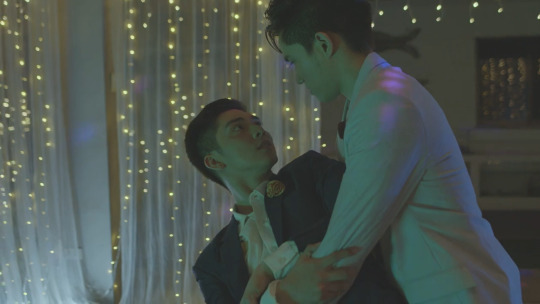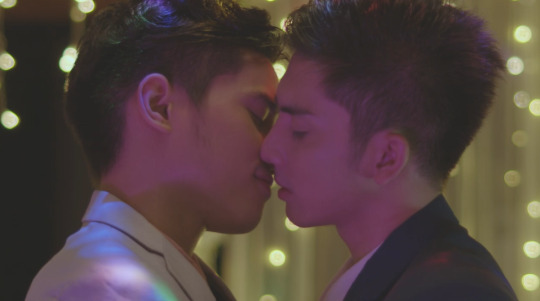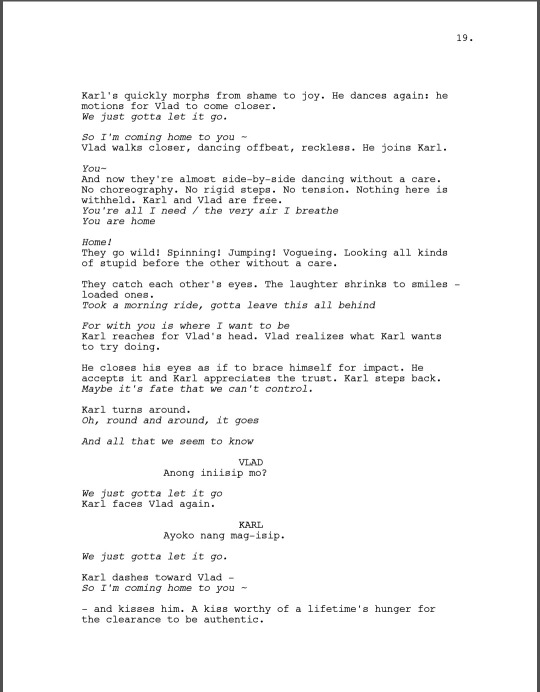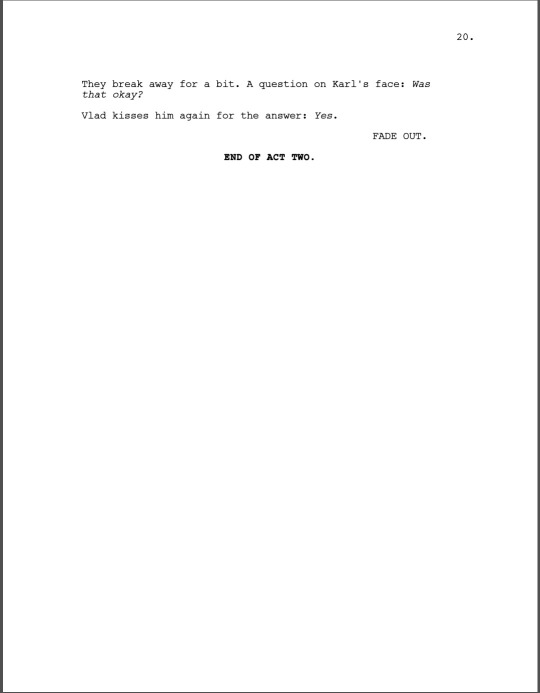#juan miguel severo
Text
3 notes
·
View notes
Text


seryoso, kahit maka move on ako kay Uno, meron at meron akong mga gamit that will always remind me of him. thank you, for giving these books.
6 notes
·
View notes
Text
Nasambit ko noong teenager pa lamang ako, madali lang namang magsulat kaya gagawa ako ng madaming tula at gagawa ako ng account sa mga blogspots para sumikat at siguradong mapapatulad ako kina Bob Ong o Juan Miguel Severo. Meron pa, noong binabasa ko ang "The Testament " ni John Grisham, ang sabi ko ay madali lang namang magpatawad at magsilbi. Isa pa, noong hindi pa ako nakakapasok sa klase ng trabaho ko ngayon, madali lang namang sumagot ng tawag at tumulong, madali lang sumunod sa gusto ng mga natawag. Ngayon ko napagtanto na mahirap palang sumulat ng wala sa puso, nakakaubos pala ng paksa, mahirap palang magpatawad, kapag malalim ang sugat, mahirap palang magsilbi sa hindi marunong magpasalamat, nakakaubos pala ng lakas umimik ng umimik at may limitasyon pala ang pagtulong sa mga abusado. May mga bagay talaga tayong masasabing "madaling gawin" hangga't hindi pa natin nararanasan ano?
2 notes
·
View notes
Text
It's been a year since I started overthinking bout this...
Ahhhhhh...
Idk anymore t-t
I kinda just wanna figure this out.. so if it's not good news.. I can just rewatch Alfonso Manalastas' and Juan Miguel Severo do that spoken word poetry again... For the idk how many times already
1 note
·
View note
Text
Legarda Lineage
Doña Clarita Tambunting Legarda’s father was Don Vicente Lucio Flores Legarda, born Dec. 13, 1873.

Image Credit
Don Vicente was a naval architect, marine engineer, and teacher. He was a Glasgow, Scotland-educated architect who trained under Daniel Hudson Burnham who drew up the city planning maps for Manila and Baguio City, Philippines. In 1902, he taught in San Francisco, USA, and went home on Manila in 1909 to become one of Manila's prominent architects. He died Feb 24, 1956, in Manila, Philippines at age 82. He is buried in Manila, Philippines. His parents were Don Miguel Legarda and Doña Genoveva Flores-Legarda. Don Miguel Legarda was born July 2, 1852 in Binondo, Manila, Philippines.
Don Miguel is the son of Don Benito Pablo Legarda y Lerma and Doña Cirila Tuason de Legarda.
Don Miguel had a brother, Don Cosme Benito Legarda y Tuason, born September 26, 1853 in Binondo, Manila, (died August 15, 1915 at 61 years old in Évian-les-Bains, Haute-Savoie, Auvergne-Rhône-Alpes, France, and buried in Manila, Philippines). Don Cosme Benito was married to Teresa de la Paz de Legarda. He earned a law degree from the University of Santo Tomas, Manila, Philippines, in 1874. He was a politician and lawyer and member of President Emilio Aguinaldo's cabinet at Malolos and vice president of the Filipino Congress 1896-1898. He was Resident Commissioner for the US Congress 1907 – 1913, representing State/Territory: Philippine Islands. (Legarda, Benito, 1853-1915, Biographical Directory of the United States Congress).
From wikipedia:
Benito Cosme Legarda y Tuason (September 27, 1853 – August 27, 1915) was a Filipino legislator who was a member of the Philippine Commission of the American colonial Insular Government, the government's legislature, and later a Resident Commissioner from the Philippine Islands to the United States Congress.
Benito Legarda died on August 27, 1915, in Evian-les-Bains, France. He is buried at the Manila North Cemetery.
The Legardas are considered one of Manila’s oldest families:
Manila’s Original 400 Old Family Names
Doña Teresa de la Paz de Legarda (born October 15, 1841 in Marikina, Manila, Philippines, died April 22, 1890 at 48 in Marikina, Manila, Philippines of Pneumonia) once owned the largest private hacienda in the Philippines in the 1800s and is the ancestor of the Tuason-Legarda-Prieto-Valdes Clan of Manila, Philippines. She was first married to Don Jose Severo Tuason, the son of Don Jose Maria Tuason and Doña Maria Jose Patiño y Tuason.
Don Benito Pablo was born on January 12, 1822 in Zubielqui, Navarra, Navarra, Spain, and died January 15, 1873 at age 51 in Binondo, Manila, Philippines.
Don Benito Pablo is the son of Don Juan Domingo Pablo Legarda Alcaine, born August 12, 1798, in Allín, Navarre, Spain, and Doña Juana Lerma.
Sources:
-The Last Hacendera: Doña Teresa de la Paz, 1841-1890 Luciano P. R. Santiago of Pila, Laguna
-Teresa de la Paz: Feminine Wiles and Family Trees, Filipino Geneology Project. Spanish-Filipino (Mestiza) Ancestry
0 notes
Text
JUAN MIGUEL SEVERO
I always find comfort in the words that you have painfully written or spoken or whatever form it has arrived to me...
The year was 2013 and i was devastated by a lost love... And your words echoed in my thoughts as i came across pieces of your art somewhere...
Since then, i came to love what you are doing... And find solace with the thought that i was not the only one who felt those crumbling pain of a heartbreak. And helped me process the pain and distress it brought me. It kept me sane...
Fastforward to 2023.
Here i am again... Rewatching and reading your pieces.
I hope this still works...
0 notes
Text
[OPINION] No One Wants to Hide in the Macabre Closet
by Mark Lester Mendez

Illustration made by Lars Leetaru.
Paminta — the term used to pertain to the person who keeps their true gender identity a secret. Questioning someone's gender seems to be a mere deal for us, but do we even consider its impact on the person being suspected and put into the spotlight of judgment? Interfering someone's gender should be taken as a sensitive issue, given that it is personal. The thing that we can only question ourselves about them is why they try to hide from their closet, and I guess we should understand their situation.
Before, I have a junior high school friend who hid his true gender identity from his family and friends because he was scared. He had no one to talk to about the restrained transcending colors that he had inside except for me. I once asked him why he was scared of coming out of his closet, and I never expected the answer that he gave me as he said that it felt like he is being threatened every time they drop that pressuring bomb on himself.
"Bakla ka ba (Are you gay)?!", is the question that they kept on asking him every moment that he shows his clumsiness. He said that the way his family asked him that question was like being gay is a crime, where there were wide eyes open, and their tone of voice was deadly serious and loud. Just imagine that you are being bombarded with suspicions inside the court where one wrong move and statement will put you in lifelong danger; that was what he always felt. In his current situation, I am glad that he already came out of his shell; though his father is still against it, now he is busy proving to him that one's gender is never a hindrance in reaching the peak of triumph.
Since the Boys' Love series is prominent nowadays, one best example of this kind of topic is Gaya Sa Pelikula (Like In The Movie), written and created by Juan Miguel Severo. The story revolves around an architecture student named Karl who has an identity crisis that later acquainted himself with Vlad, an openly gay, as they shared a room since Karl can't pay his bills as he faced mishaps. One of the lines that calls my attention here is when Karl kept asking Vlad if he is gay and being reluctant to use the term "gay" as if it is an insult. He followed it with a line saying, "In fairness ha, hindi ka halata (In fairness, you are not that obvious)" as if it is a compliment when it is not as we are used to stereotyping LGBTQIA+ culture accompanying it with antediluvian conventions.
The series also delivers a message that all of us should agree with. It is about the "coming out" stage of closeted individuals wherein we should not put pressure on them as they own it only by themselves. They should be the ones taking their time how to get out of the closet without feeling the pressure, still, remember that no matter what we do, reality will always have its place in our life; and the truth is that the real battle is not in our comfort zone (closet or anyone's safe-haven) as it is in the outside world. The same way how their friend relates to Karl pursuing his filming career because, in film, we want our story to be told, seen, and cared for by the audience, but how will they care if you do not care about what they will say as you do not want them to know you? We better think deeper about that.
As the series title should be the one saying it all — just like in the movies where everyone has happy endings, this series ends cliffhanging the viewers as the expected cliche, and overused happy endings did not take their flight. Still, the good thing is that the characters are on their way to finding their truest selves (and yes, the storyline deserves a season 2!).
We may think that it is easy to come out, but if we put ourselves into their shoes, we will understand that our situation is unusual from theirs as they have different things to prioritize, and one factor is the family's approval. For those people who are still in their closet, take your time inside, and if the time comes that you feel suffocated and wanted to be seen, put in mind that there are many people outside who are waiting to welcome you. As quoted in the given series, remember that you are entitled to the love that lets you dance without fear and shame.
0 notes
Text
The moon is so tired of the poets.
Juan Miguel Severo
1 note
·
View note
Text
Tinitignan ko book shelf ko. Gusto ko basahin ulit yung book ni Juan Miguel Severo after 3 years (na bigay ni Uno. May story tong book na to pero next time ko nalang ikwento)
sabi sainyo may thing ako sa mga may Miguel na name. isa pa, (almost) magkaname na sila ni uno. Nagka issue lang din talaga tong si Juan Miguel e. Sayang
5 notes
·
View notes
Note
Also (sorry dami kong sinesend na ask!) i have stumbled upon a poem by juan miguel severo titled: Isang Letra. I think you’ll like it- hopefully.
- 🌸
wag kang mag sorry 😡 i enjoy reading yours asks about home pati na rin mga kwentos mo! thank you sa reco, basahin ko siya mamaya! 🫶🏼
0 notes
Text
How Social Media Alters the Way We Speak

As time continues to move forward, governments change, cities growing, so do people’s behaviors change. The way we live, the decisions we make, our way of communicating are all influenced by how we are shaped by the world around us. The way we speak tells a lot about how times are changing and with it comes the evolving of languages. From Shakespeare’s most notable sonnets, Virgilio S. Almario’s Ibong Adarna to modern day poets like Lang Leav and Juan Miguel Severo, you can definitely point out the astounding difference even with eyes closed. So now that we are in the 21st century where smart technology is all the rage and humans frequent the vast and bodiless realm on the internet called social media the question is, how does social media influence the way we speak?
The Power of Social Media
It’s a no-brainer at this point to say that social media is almost part of everyone’s daily routine. From the moment of waking up in the morning, to riding the morning jeep on the way to work or school, and even up until before going to bed, modern day people are on their phones scrolling through the endless pit of social networking sites namely Facebook, Twitter, Instagram, Reddit, Tiktok, and many more. Technology has advanced to a point where information dissemination comes and goes before you can even finish snapping your fingers and so as more people spend time online on these areas of the internet, it is highly likely that social media has the most prevalent influence on our day-to-day conversations.
If you think about it, the rapid exchange of information would allow people to adopt new words faster than ever. One example of this is this new Filipino expression “Sana all” that is used as a compliment that connotes positive jealousy towards someone having something everyone would also like to have or to experience. No one knows exactly where this phrase came from or who started it but it has been used by a lot of people at some point and has been used much enough to be an actual expression and it has also undergone its own changes. From the regular “Sana all” turned into “Sana oil” as a joke, it has shortened versions like “Sanaol” and “Naol” and then finally another one which is not as popular as the ones mentioned and that is “Sabaok” which also started out as a joke because some netizens make typo errors attempting to type “sanaol”. It is basically a misspelled version used as a joke. It’s safe to say it’s a bit confusing to try and comprehend how a word or phrase comes to existence and go through many different changes, with some even getting lost in translation at that.

This is Only Just the Beginning
This way of speaking can be considered as “technospeak” which is a term coined by honorary professor of linguistics at the University of Bangor, Professor David Crystal. In his book Language and the Internet he says that
“The Internet is in fact enabling a dramatic expansion to take place in the range and variety of language, and is providing unprecedented opportunities for personal creativity. The Internet has now been around long enough for us to ‘take a view’ about the way in which it is being shaped by and is shaping language.”
He also notes that
“The readiness with which people do adapt language to meet the needs of new situations, which is at the heart of linguistic evolution is going to be fully exploited in the next few decades, with the emergence of yet more sophisticated forms of digitally mediated communication.”
Regular expressions and acronyms like LOL for "laugh out loud”, keyboard smashing as a way to imply that one is laughing so hard they can’t type well, and expressions like “Sana all” are just the start of the gradual domination of technospeak. As social media and technology continues to move forward and advance, expect that there will surely be more language-altering shifts to occur in the near future. It makes one think just how are we going to keep up?
References:
https://www.bbc.com/news/technology-10971949https://linguagreca.com/blog/2014/08/how-social-media-is-changing-language/https://www.newscientist.com/article/mg21628916-300-twitter-shows-language-evolves-in-cities/?ignored=irrelevant
1 note
·
View note
Text
i’m not over Gaya sa Pelikula episode 5. the sheer layers of storytelling we have, and i know you all have pointed them out. long post incoming:
employed foreshadowing in the two horror stories and the events that later followed. from the story of the nurse seeing the cadaver in his own closet to Vlad seeing the photo of a young Karl, now a grown man and so different from the child he once was; and from the man looking at his own self holding his own heart, to Karl holding his own heart as he looked at himself in the mirror. these are not horror stories -- they are real. in the next episode, we will find the consequences of these actions.
the brownout as a device. do we not tell our stories in the dark? queer people have long been used to telling stories in this familiar place. they do not dare to tell it under the sun, for all of the world to see because stories like theirs are resented just for being. this drinking session in the dark, when no one is around and anyone else is out of earshot, that is when stories so honest, so brutal and unabashedly true, are released. this scene was beautiful and cathartic.
anna is no plot device. she’s a beautiful, multilayered, flawed character. who would have thought anna was a mom? i know i’m surprised. and yet the writer did not leave her be only to be a friend for comedic purposes. she was there to tell her own story, like everyone else does. she has agency as a woman, and for an 8-episode series that bills itself as a BL series it is really commendable to grasp the complexity of all its characters, not let them be tossed aside. and you know what? Vlad even shined in this scene. women and queer people have long stood side by side, aware and empathic of their fundamental disadvantages in society. the queer struggle is rooted in the victories of the feminist struggle, after all, and in this scene we zoom in on just how that takes form, even in the simplest of ways. just look at how Vlad immediately accepts anna’s story, and does not even judge her.

the effortless gender sensitivity. the episode does its best to quash stigmas in the queer community itself. when Karl said, for instance, that In fairness, Vlad, you’re not obviously effeminate, Vlad was quite quick to correct him, and here we see an innocent Karl simply accepting his mistake, saying sorry, and intently listening when Vlad goes on to explain where he went wrong. in that moment we were all anna, smiling in sheer excitement that this kind of thing casually happens, for is that not what queer people fear at time? that even when you know better and want to correct other people for their mistakes, you'd still second guess yourself or choose if it's even okay or perhpas you're imposing your own ideals on another person. yet, Gaya sa Pelikula does away with that and shows that, ihdeed, ignorance is not cured by anger, but education. what Karl said is a common microaggression against the queer community that unfortunately, many shows (BLs, even) fall prey to. Gaya sa Pelikula is not only good plot-wise, but it is also careful to weigh its options of which important lessons it needs to impart. it is proof that BL shows shouldn’t be just for entertainment; they must advance change.
from the dark, to the blinding light. the rather smooth transition from Karl having to teach Vlad and Vlad even stepping on Karl, with Karl taking the lead; and then, to the prom they had in their minds: beautiful, well-lit, but only for them. a dream come true for Vlad—for any queer person deprived of the simple joys, of something as simple as the privilege to dance. the hope of things getting better.
Karl took the lead at first, but then Vlad did. in the beginning, it was Karl who led a reticent Vlad to the prom dance; yet, when they donned the suits and danced in the light, the roles changed. Vlad was taking the lead. it was as though, when Karl opened up to Vlad and practically told him, ‘it’s okay to be yourself with me,’ that gave Vlad the license to really be himself, be confident and free to express what he felt, share what he knew. note that during the transition, Vlad was at first so surprised by the lights! he did not know that things could turn out so good for him and Karl, and yet it was halpening. so he was so confident, leading Karl in the dance, to make Karl feel what he feels. he even said, “simplehan na lang natin (let’s make things simple).” i find meaning in that, too: see, Vlad has known himself to be gay since high school, but here we have Karl who does not even begin to question for himself who and what he is. Vlad knows this. he even sang, ever so softly into Karl’s ears, as if to say that it’s okay if you're only beginning your journey now. things are discovered, one step at a time.

in the end, karl was smiling. confused, but happy. holding his heart, beating so loud, karl does not know what to feel. is that not the experience of every queer person? to know that, perhaps for the first time ever, things are “different” from what they've been conditioned to believe? and yet the most confusing thing is that it feels good and freeing and warm. in the dark, when no one is around, Karl felt his heart, saw his own reflection, and even though he does not admit it yet, Karl knows he is happy. this is the true turning point of the story. i am quite sure we'll experience the sadness next episode, so be sure to be ready.
i am just so overwhelmed by Gaya sa Pelikula. it is not only aesthetically beautiful, but is also filled with nuances that i am not afraid to look more into it. perhaps i have been too saturated with a lot of just fun, but really nonsensical BLs, that i almost forgot that those shouldn’t be the standard. instead, we deserve ones that truly cater to our needs, tell our stories, and make a shot for things going to be better. to be sure, Gaya sa Pelikula was written by a queer screenplay writer himself, which only confirms the need for more stories told by queer people, for queer people.

Gaya sa Pelikula does what others are not doing. and so much more.
there are three more episodes, but i have no doubt that it will turn out excellent, far exceeding yet again my already high expectations.
in the aftermath of episode 5, i hark back to what juan miguel severo, the show’s writer and producer, had promised: “We will take back our story!”
and, indeed, through this episode, he proves that he already has.
#gaya sa pelikula#gayasapelikulaep05#ian pangilinan#paolo pangilinan#bl series#juan miguel severo#screenplay#things are just so good and i'm not even afraid that we only have 3 episodes left!!!!!!!#i just believe in it#that it will be so good#that i'll be satisfied with 8 episodes
622 notes
·
View notes
Text



@TheRainBro: "A kiss worthy of a lifetime's hunger for the clearance to be authentic."
#have y’all seen this?? it’s very important that y’all see this~#gaya sa pelikula#like in the movies#gsp 1x06#juan miguel severo#script#my posts#tumblr hates links i’m so sorry :(
268 notes
·
View notes
Text
Raise of hands… who heard the news about Gaya sa Pelikula’s Juan Miguel Severo sexual assault allegations and is in complete shock, violently ill, and/or shaking with rage? I cannot be alone here.
33 notes
·
View notes